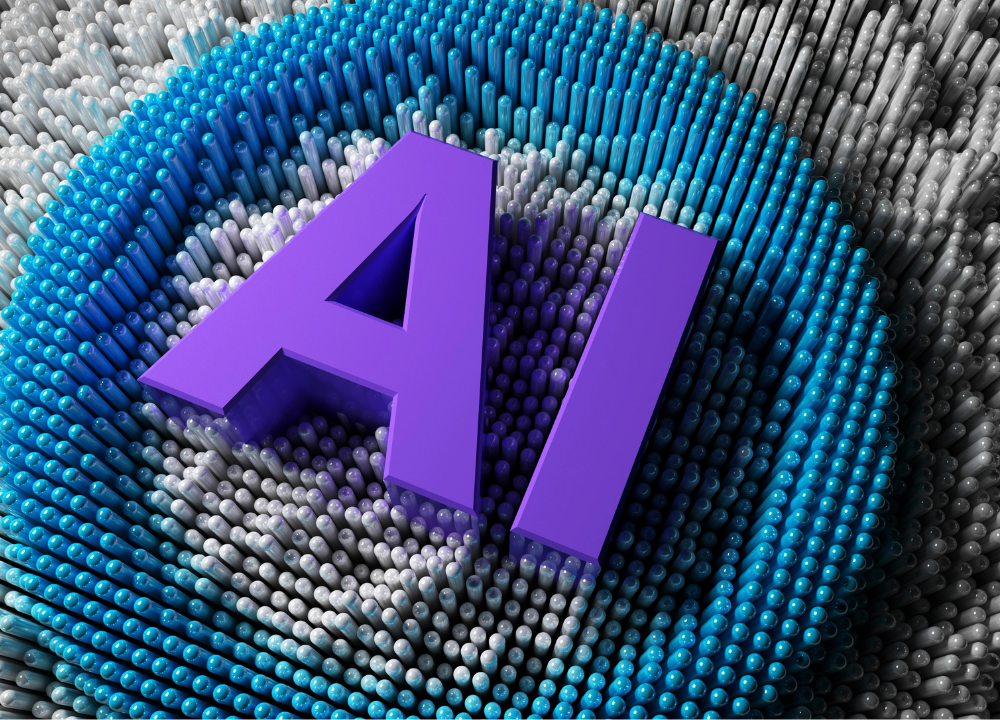Future of AI: How to Leverage AI to Make Better Career Choices

- What is the Future of AI and its Benefits for Working Professionals?
- How Can Job Seekers Use AI in Their Job Search?
- How Can Freelancers Leverage AI to Improve Their Work?
- How Can Managers Implement AI to Boost Efficiency and Performance in the Workplace?
- What are the Ethical Implications of AI Advancement?
- Enhance Your Knowledge of AI with Emeritus
Although Artificial Intelligence (AI) has been around for decades, its adoption across different sectors is still incomplete, considering its potential. The IT sector has seen high adoption of AI, whereas industries like transportation and retail have very low awareness and adoption rates. According to the Advanced Technologies Adoption and Use by U.S. Firms 2020 report, the lowest rates of AI adoption in the U.S. are in agriculture, mining, utilities, retail, and transportation. The future of AI will be great in certain niches since we will keep finding newer use cases as time passes.
Experts believe that the main reason for low AI adoption across sectors is the nervousness surrounding it. In an interview with a publication, Sharad Varshney, CEO of OvalEdge, revealed that many business leaders are wary of adopting AI because they fear it will make errors in critical business tasks or be hard to manage.
But the future of AI is by no means bleak. According to a report published in the Times of India, AI adoption will add $500 billion to the economy by 2025. Read along to learn more about the future of AI and how to leverage it to gain a competitive advantage.
What is the Future of AI and its Benefits for Working Professionals?
 Most of the non-technical workforce is not familiar with the benefits and its future. They fear AI because they believe it can take over their jobs. According to the 2023 Word Trend Index, 49% of the worldwide workforce fears AI will take over their jobs. However, they are unaware of the benefits of AI.
Most of the non-technical workforce is not familiar with the benefits and its future. They fear AI because they believe it can take over their jobs. According to the 2023 Word Trend Index, 49% of the worldwide workforce fears AI will take over their jobs. However, they are unaware of the benefits of AI.
For instance, AI-enabled applications like ChatGPT help professionals with research and writing. So, a content writer or an editor can use ChatGPT to write blogs, ad copies, and content pieces for different platforms. Another example would be the use of chatbots for customer service. It will certainly reduce the demand for customer support work.
While some worry that ChatGPT can take over their livelihood, they fail to recognize how it reduces the time taken to complete menial and repetitive tasks like structuring documents, filling out forms, and other tedious manual work. Imagine the time ChatGPT can save by doing some basic work like accumulating information and structuring a document.
According to a McKinsey report, the workforce of the future will need to acquire new skills and adapt to increasingly capable machines to save their jobs. Moreover, understanding AI can have a far-reaching impact on a professional’s efficiency and capability to complete complex tasks.
ALSO READ: How to Choose the Right Career Path
How Can Job Seekers Use AI in Their Job Search?
Artificial intelligence has the potential to streamline the job search process and take over time-consuming tasks such as resume and cover letter building. There are different ways job seekers can use AI to find jobs. Below are two popular ways job seekers use AI to find jobs.
1. Build a Resume With AI Tools
 AI-powered resume builders are applications that use artificial intelligence algorithms to create a resume and other job-related documents like a cover letter. These apps take user input, analyze relevant job openings, evaluate a person’s experience and qualifications, and identify relevant keywords and skills to assist users in crafting a customized resume.
AI-powered resume builders are applications that use artificial intelligence algorithms to create a resume and other job-related documents like a cover letter. These apps take user input, analyze relevant job openings, evaluate a person’s experience and qualifications, and identify relevant keywords and skills to assist users in crafting a customized resume.
Here are some of the benefits of using a resume builder:
- Generates personalized content
- Offers a wide variety of resume formats and designs
- Saves time
According to the iCIMS Class of 2023 report, 47% of college seniors in the U.S. are interested in using ChatGPT and other AI tools for writing a resume or cover letter. Interestingly, 25% of Gen Z have already used AI tools to write their resume or cover letter.
2. Use AI Tools for Finding Matching Jobs
Job seekers can use AI tools to find jobs that match their skills. AI algorithms analyze one’s skills, work history, and preferences to show matching job listings. According to a CBS report, the journey of a Boston graduate who used the AI platform Sonara to find jobs matching their skillset was described. The report shed light on how using AI tools for applying for jobs is more convenient, as they could apply in bulk to different companies with little to no effort.
How Can Freelancers Leverage AI to Improve Their Work?
According to a TimesNow News report, India witnessed a 46% growth in freelancers in 2020. As more and more individuals turn to freelancing as a way to make a living, the need for efficient tools to manage workloads and streamline processes is also growing.
Thanks to AI, freelancers have different tools to improve their work. AI will help freelancers enhance the quality of their work. For instance, an AI-powered editing app can ensure that a blog is free of errors, while a machine learning tool can assist with data analysis and help identify trends and patterns.
Moreover, freelancers can leverage AI-powered tools to quickly identify relevant information from various sources and provide valuable insights.
How Can Managers Implement AI to Boost Efficiency and Performance in the Workplace?
According to PwC’s Global Artificial Intelligence Study, the economic gains of AI adoption in business can be seen through an increase in overall organizational productivity and increased customer demand due to personalized or high-quality AI-enhanced products and services. The report further reveals that AI could contribute up to $15.7 trillion to the global economy in 2030. Therefore, businesses trying to get an edge over their competition can consider adopting AI.
Here’s how managers can implement AI to boost efficiency and performance in the workplace:
- Identify time-consuming tasks and automate them using AI
- Utilize AI tools to support managers and employees in business decisions
- Implement AI-powered workflow management systems to optimize processes and enhance collaboration
- AI-powered chatbots and virtual assistants can be used to provide instant replies to customer inquiries, provide instant support, and assist in resolving common issues
- AI can help personalize employee experiences by providing tailored recommendations for professional development, training opportunities, and career paths
- AI can streamline the recruitment process by automating resume screening, analyzing candidate profiles, and identifying the best-fit candidates based on predefined criteria
ALSO READ: 12 Benefits of Online Learning for Working Professionals
What are the Ethical Implications of AI Advancement?
While implementing AI, organizations often overlook their ethical implications, producing unwelcome results. Here are some ethical implications of AI advancements that one must remember while adopting the technology.
1. Bias and Fairness
Ensuring that AI algorithms are fair, transparent, and non-discriminatory is crucial. That’s because AI systems can have biases in the data used to train them, which can affect the predictions made.
2. Privacy and Data Protection
AI often relies on large amounts of data, including personal and sensitive information. It is essential to handle data responsibly, ensuring proper consent, security, and compliance with applicable data protection regulations.
3. Security and Safety
AI systems are vulnerable to cybersecurity threats and the actions of malicious actors. Robust security measures should be implemented to protect AI systems from unauthorized access, tampering, or adversarial attacks.
4. Ethical Use of Data
AI should be deployed for ethical purposes and not be used to infringe upon human rights, engage in surveillance without proper justification, or enable harmful activities.
ALSO READ: As Helpful as ChatGPT Can Be, Here’s Why We Need AI Regulation Right Now
Enhance Your Knowledge of AI with Emeritus
Want to learn more about AI? Enroll in AI and ML courses offered by Emeritus. These courses are designed to provide learners with in-depth information about AI concepts and the future of AI. These courses are designed for fresh graduates and working professionals to scale their careers.





